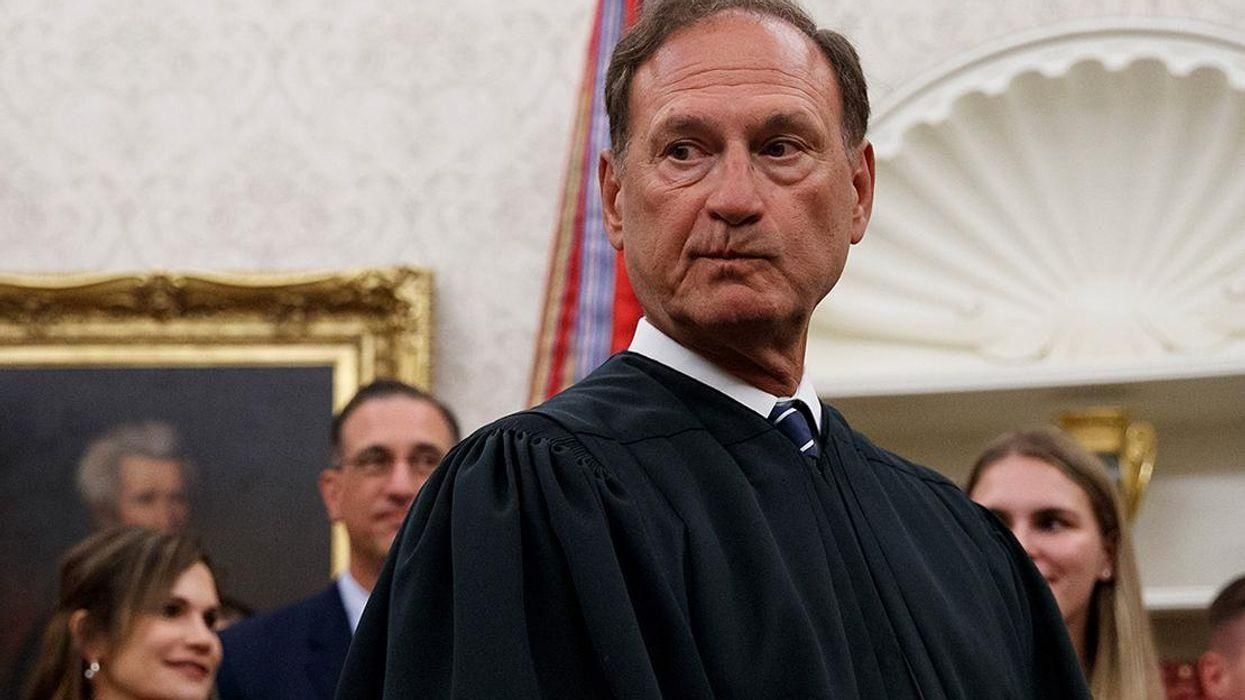'Watershed moment' as group of Christian conservatives find 'sympathetic audience' at US Supreme Court

U.S. Supreme Court Justice Samuel Alito (from Creative Commons)
December 29, 2023 | 08:53AM ETBank
The U.S. Supreme Court has leaned conservative for decades, but a key difference between the High Court of the 1990s and the High Court of 2023 is the strong influence of social conservatives. Former Justice Anthony Kennedy and the late Justice Sandra Day O'Connor were conservative Ronald Reagan appointees but often sided with liberals when it came to abortion and gay rights; today's Supreme Court is much more sympathetic to the religious right.
In Oklahoma, social conservatives are pushing for a taxpayer-funded Catholic school — inspiring, according to Politico's Heidi Przybyla, heated debates over what the U.S. Constitution's First Amendment says about the separation of church and state. And social conservatives, she reports, may have a sympathetic audience at the Roberts Court.
"At issue is the Roman Catholic Archdiocese of Oklahoma's push to create the St. Isidore of Seville Catholic Virtual School, which would be the nation's first religious school entirely funded by taxpayers," Przybyla explains. "The school received preliminary approval from the state's charter school board in June. If it survives legal challenges, it would open the door for state legislatures across the country to direct taxpayer funding to the creation of Christian or other sectarian schools."
POLL: Should Trump be allowed to hold office again?
Paul Collins, a legal expert at the University of Massachusetts, Amherst, believes that the religious right could have a major advantage if the Oklahoma debate goes to the Roberts Court.
Collins, author of the 2008 book "Friends of the Supreme Court: Interest Groups and Judicial Decision Making," told Politico, "The Christian conservative legal movement, which has its fingerprints all over what's going on in Oklahoma, is a pretty small, tight-knit group of individuals. They recognize the opportunity to get a state to fund a religious institution is a watershed moment. They have a very, very sympathetic audience at the Supreme Court. When you have that on the Supreme Court you're going to put a lot of resources into bringing these cases quickly."
The religious right has been claiming, for decades, that there is no such thing as separation of church and state in the U.S. Constitution — a claim promoted by far-right House Speaker Mike Johnson (R-Louisiana). But critics of the religious right, including the American Civil Liberties Union (ACLU) and the late Norman Lear's People for the American Way, have been countering that although the First Amendment promises freedom of religion, it is very clear about government not favoring one religion over another.
The First Amendment states, "Congress shall make no law respecting an establishment of religion, or prohibiting the free exercise thereof; or abridging the freedom of speech, or of the press; or the right of the people peaceably to assemble, and to petition the Government for a redress of grievances."
READ MORE: How the Supreme Court could make same-sex marriage into second-class marriage
Attorney Andrew Seidel, whose book "American Crusade: How the Supreme Court is Weaponizing Religious Freedom" was published in 2022, warns that the religious right has gained considerable influence on the Roberts Court.
Seidel told Politico, "Schools are the last bastion of church-state separation, and they have been the target of Christian nationalists and the shadow network for decades. That's why it's so striking. In 2022, they got a change in the personnel on the court thanks to [conservative legal activist Leonard] Leo."
Heidi Przybyla's full article for Politico is available at this link.